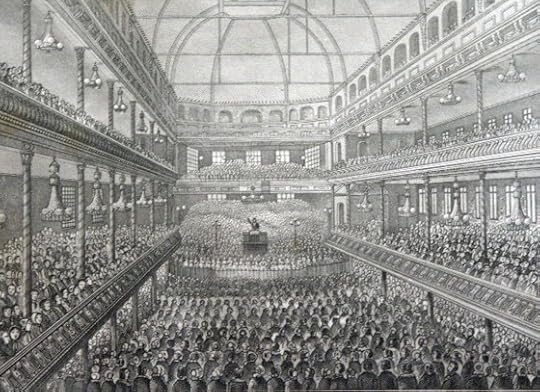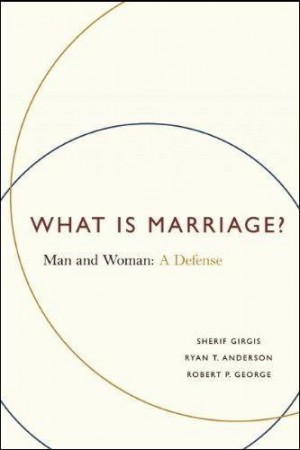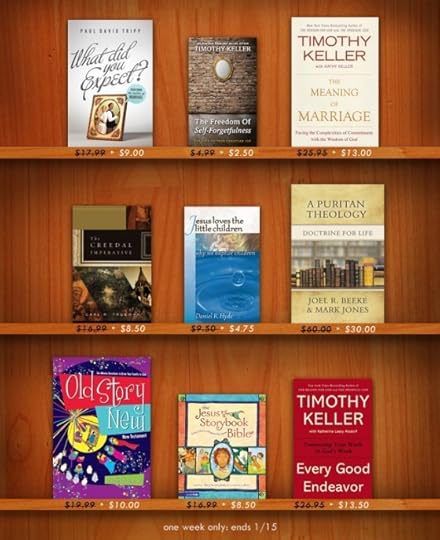Justin Taylor's Blog, page 174
January 11, 2013
A Song Every Dad Should Listen To
A new video for a wonderful song (“You’ll Find Your Way”) from Andrew Peterson’s latest album, Light for the Lost Boy:
January 10, 2013
Louie Giglio’s Ouster from the Presidential Inauguration for a Sermon on Homosexuality from the ’90s
For the past several decades voices inside and outside the church have said that Christians have hurt our witness by focusing on issues that challenge individualistic sexual permissiveness. They say that if we would only focus on actions that show how much we love our neighbor, actions like ending human trafficking, we would be welcomed in the public square. But as the Giglio incident reveals, no amount of good works can atone for committing the secular sin of subscribing to the biblical view of sexuality.
It’s not even enough to stop talking about the issue. As Giglio says in his statement,
“Clearly, speaking on [homosexuality] has not been in the range of my priorities in the past fifteen years.” But for the sexual liberationists, both secular and religious, it is not enough to have stopped talking about an issue decades ago. Anyone who has ever spoken about the issue—or at least has not recanted from believing what God says about homosexuality—is to be treated as a bigot.
When it is now impossible for one who holds to the catholic Christian view of marriage and the gospel to pray at a public event, we now have a de facto established state church. Just as the pre-constitutional Anglican and congregational churches required a license to preach in order to exclude Baptists, the new state church requires a “license” of embracing sexual liberation in all its forms.
Note, this now doesn’t simply exclude harsh and intemperate statements or even activism. Simply holding the view held by every Roman pontiff and by every congregation and synagogue in the world until very recent days is enough to make one “radioactive” in public.
As citizens, we ought to insist that the President stand up to his “base” and articulate a vision of a healthy pluralism in the public square. Notice that the problem is not that this evangelical wants to “impose his religion” on the rest of society. The problem is not that he wants to exclude homosexuals or others from the public square or of their civil rights. The problem is that he won’t say that they can go to heaven without repentance. That’s not a civil issue, but a religious test of orthodoxy.
The Presidential Inaugural Committee and the White House have now declared historic, biblical Christianity to be out of bounds, casting it off the inaugural program as an embarrassment. By its newly articulated standard, any preacher who holds to the faith of the church for the last 2,000 years is persona non grata. By this standard, no Roman Catholic prelate or priest can participate in the ceremony. No Evangelical who holds to biblical orthodoxy is welcome. The vast majority of Christians around the world have been disinvited. Mormons, and the rabbis of Orthodox Judaism are out. Any Muslim imam who could walk freely in Cairo would be denied a place on the inaugural program. Billy Graham, who participated in at least ten presidential inaugurations is welcome no more. Rick Warren, who incited a similar controversy when he prayed at President Obama’s first inauguration, is way out of bounds. In the span of just four years, the rules are fully changed.
The gauntlet was thrown down yesterday, and the axe fell today. Wayne Besen, founder of the activist group Truth Wins Out, told The New York Times yesterday: “It is imperative that Giglio clarify his remarks and explain whether he has evolved on gay rights, like so many other faith and political leaders. It would be a shame to select a preacher with backward views on LBGT people at a moment when the nation is rapidly moving forward on our issues.”
And there you have it — anyone who has ever believed that homosexuality is morally problematic in any way must now offer public repentance and evidence of having “evolved” on the question. This is the language that President Obama used of his own “evolving” position on same-sex marriage. This is what is now openly demanded of Christians today. If you want to avoid being thrown off the program, you had better learn to evolve fast, and repent in public.
This is precisely what biblical Christians cannot do. While seeking to be gentle in spirit and ruthlessly Gospel-centered in speaking of any sin, we cannot cease to speak of sin as sin. To do so is not only to deny the authority of Scripture, not only to reject the moral consensus of the saints, but it undermines the Gospel itself. The Gospel makes no sense, and is robbed of its saving power, if sin is denied as sin.
An imbroglio is a painful and embarrassing conflict. The imbroglio surrounding Louie Giglio is not only painful, it is revealing. We now see the new Moral McCarthyism in its undisguised and unvarnished reality. If you are a Christian, get ready for the question you will now undoubtedly face: “Do you now or have you ever believed that homosexuality is a sin?” There is nowhere to hide.
Why Spurgeon Thought the Plain Preaching of the Gospel Was Sufficient to Grow a Church

Spurgeon:
Are you afraid that preaching the gospel will not win souls? Are you despondent as to success in God’s way? Is this why you pine for clever oratory? Is this why you must have music, and architecture, and flowers and millinery? After all, is it by might and power, and not by the Spirit of God? It is even so in the opinion of many.
Brethren beloved, there are many things which I might allow to other worshippers which I have denied myself in conducting the worship of this congregation. I have long worked out before your very eyes the experiment of the unaided attractiveness of the gospel of Jesus. Our service is severely plain. No man ever comes hither to gratify his eye with art, or his ear with music. I have set before you, these many years, nothing but Christ crucified, and the simplicity of the gospel; yet where will you find such a crowd as this gathered together this morning? Where will you find such a multitude as this meeting Sabbath after Sabbath, for five-and-thirty years? I have shown you nothing but the cross, the cross without flowers of oratory, the cross without diamonds of ecclesiastical rank, the cross without the buttress of boastful science. It is abundantly sufficient to attract men first to itself, and afterwards to eternal life!
In this house we have proved successfully, these many years, this great truth, that the gospel plainly preached will gain an audience, convert sinners, and build up and sustain a church. We beseech the people of God to mark that there is no need to try doubtful expedients and questionable methods. God will save by the gospel still: only let it be the gospel in its purity. This grand old sword will cleave a man’s chine [i.e., spine], and split a rock in halves.
How is it that it does so little of its old conquering work? I will tell you. Do you see the scabbard of artistic work, so wonderfully elaborated? Full many keep the sword in this scabbard, and therefore its edge never gets to its work. Pull off that scabbard. Fling that fine sheath to Hades, and then see how, in the Lord’s hands, that glorious two-handed sword will mow down fields of men as mowers level the grass with their scythes.
There is no need to go down to Egypt for help. To invite the devil to help Christ is shameful. Please God, we shall see prosperity yet, when the church of God is resolved never to seek it except in God’s own way.
Charles Haddon Spurgeon
Metropolitan Tabernacle Pulpit, 1888, vol. 34, p. 563
HT: Rodney Decker
January 9, 2013
Calvin on Christ in All of Scripture
John Calvin, writing in the preface to Pierre-Robert Olivétan’s 1535 translation of the New Testament.
He [Christ] is Isaac, the beloved Son of the Father who was offered as a sacrifice, but nevertheless did not succumb to the power of death.
He is Jacob the watchful shepherd, who has such great care for the sheep which he guards.
He is the good and compassionate brother Joseph, who in his glory was not ashamed to acknowledge his brothers, however lowly and abject their condition.
He is the great sacrificer and bishop Melchizedek, who has offered an eternal sacrifice once for all.
He is the sovereign lawgiver Moses, writing his law on the tables of our hearts by his Spirit.
He is the faithful captain and guide Joshua, to lead us to the Promised Land.
He is the victorious and noble king David, bringing by his hand all rebellious power to subjection.
He is the magnificent and triumphant king Solomon, governing his kingdom in peace and prosperity.
He is the strong and powerful Samson, who by his death has overwhelmed all his enemies.
This is what we should in short seek in the whole of Scripture: truly to know Jesus Christ, and the infinite riches that are comprised in him and are offered to us by him from God the Father. If one were to sift thoroughly the Law and the Prophets, he would not find a single word which would not draw and bring us to him. . . . Therefore, rightly does Saint Paul say in another passage that he would know nothing except Jesus Christ, and him crucified.
HT: Tim Keller, via John Starke
What Is Marriage? Man and Woman: A Defense
 The Heritage Foundation on a compelling new book with a very careful, logical, historical, and social argument:
The Heritage Foundation on a compelling new book with a very careful, logical, historical, and social argument:
Until recently, no society had questioned whether marriage would be anything other than a male-female union. What Is Marriage? identifies and defends the reasons for this historic consensus and shows why redefining civil marriage is unnecessary, unreasonable, and contrary to the common good. What Is Marriage? answers common objections: that the historic view of marriage is rooted in bigotry; that it is callous to people’s needs; or that it can’t show the harm of recognizing same-sex couplings.
Originally published in the Harvard Journal of Law and Public Policy, the book’s core argument quickly became the year’s most widely read essay on the most prominent scholarly network in the social sciences. Since then, it has been cited and debated by scholars and activists throughout the world as the most formidable defense of the tradition ever written. Join us as authors Sherif Girgis, Ryan T. Anderson, and Robert P. George discuss about what marriage is, why it matters, and how to talk about it.
You can listen to the audio, or watch the video below:
HT: Owen Strachan
Seeing Christ in Every Chapter of the Bible Is Not a Late 20th Century Development
Article IX of the 1878 Niagara Creed developed around their Bible conferences:
We believe that all the Scriptures, from first to last, center about our Lord Jesus Christ, in His Person and work, in first and second coming; and hence that no chapter even of the Old Testament is properly read or understood until it leads to Him; and moreover, that all the Scriptures from first to last, including every chapter of the Old Testament, were designed for our practical instruction. (Luke 24:27,44; John 5:39; Acts 7:2-3; Acts 18:28; Acts 26:22-23; Acts 28:23; Romans 15:4; 1 Corinthians 10:11)
It’s interesting to note that the Niagara conference folks were dispensationalists, whereas the rise of Christocentric hermeneutics in the 20th century seems more associated with covenant theologians.
January 8, 2013
Was Spurgeon the Original Inspiration for the “Footprints” Poem?
 The opening paragraph of a Spurgeon sermon from 1880:
The opening paragraph of a Spurgeon sermon from 1880:
Were you ever in a new trouble, one which was so strange that you felt that a similar trial had never happened to you and, moreover, you dreamt that such a temptation had never assailed anybody else? I should not wonder if that was the thought of your troubled heart. And did you ever walk out upon that lonely desert island upon which you were wrecked and say, “I am alone—alone—ALONE—nobody was ever here before me”? And did you suddenly pull up short as you noticed, in the sand, the footprints of a man? I remember right well passing through that experience—and when I looked, lo, it was not merely the footprints of a man that I saw, but I thought I knew whose feet had left those imprints. They were the marks of One who had been crucified, for there was the print of the nails. So I thought to myself, “If He has been here, it is no longer a desert island. As His blessed feet once trod this wilderness-way, it blossoms now like the rose and it becomes to my troubled spirit as a very garden of the Lord!”
—Charles Haddon Spurgeon, “The Education of the Sons of God” (Metropolitan Tabernacle: June 10, 1880).
HT: Rachel Aviv
Why Adoption Is a Higher Blessing than Justification
J. I. Packer:
Paul teaches that the gift of justification (i.e., present acceptance by God as the world’s Judge) brings with it the status of sonship by adoption (i.e., permanent intimacy with God as one’s heavenly Father, Gal. 3:26; 4:4-7). In Paul’s world, adoption was ordinarily of young adult males of good character to become heirs and maintain the family name of the childless rich. Paul, however, proclaims God’s gracious adoption of persons of bad character to become “heirs of God and co-heirs with Christ” (Rom. 8:17).
Justification is the basic blessing, on which adoption is founded; adoption is the crowning blessing, to which justification clears the way. Adopted status belongs to all who receive Christ (John 1:12). The adopted status of believers means that in and through Christ God loves them as he loves his only-begotten Son and will share with them all the glory that is Christ’s now (Rom. 8:17, 38-39). Here and now, believers are under God’s fatherly care and discipline (Matt. 6:26; Heb. 12:5-11) and are directed, especially by Jesus, to live their whole lives in light of the knowledge that God is their Father in heaven. They are to pray to him as such (Matt. 6:5-13), imitate him as such (Matt. 5:44-48; 6:12, 14-15; 18:21-35; Eph. 4:32-5:2), and trust him as such (Matt. 6:25-34), thus expressing the filial instinct that the Holy Spirit has implanted in them (Rom. 8:15-17; Gal. 4:6).
Adoption and regeneration accompany each other as two aspects of the salvation that Christ brings (John 1:12-13), but they are to be distinguished. Adoption is the bestowal of a relationship, while regeneration is the transformation of our moral nature. Yet the link is evident; God wants his children, whom he loves, to bear his character, and takes action accordingly.
—J. I. Packer, Concise Theology: A Guide to Historic Christian Beliefs (Wheaton, IL: Tyndale House, 1993), 167-168.
Two Books Sales to Know About
From Crossway:
Between January 8 and January 15, all ebooks on Crossway.org will be priced at $5.99 or less.This special sale also includes ESVBible.org modules, including the ESV Online Study Bible, the Online Global Study Bible, and GreekTools, along with many others. You can find a complete list here. The study Bible modules contain all the study notes, articles, charts, and maps found in the print editions, seamlessly integrated with the ESVBible.org interface. . . .
If you’re not quite sure where to start, we’d love to suggest three of our top books from 2012: The Explicit Gospel by Matt Chandler with Jared Wilson, The Hole in Our Holiness by Kevin DeYoung, and Dangerous Calling by Paul Tripp.
More details here.
If you want some encouragement to use the ESV Study Bible (and its concise adaptions, the ESV Study Student Bible and ESV Global Study) in your ministry, here’s a recommendation from Keith E. Johnson, National Director of Theological Education for Cru (Campus Crusade for Christ):
If I could recommend one tool to anyone who wants to study the Word of God, it would be the ESV Study Bible. Not only does it contain wealth of notes and articles addressing everything from the meaning of individual verses to the big picture of God’s story but all these resources are also available online. We use the ESV Study Bible as a tool for training Cru missionaries how to interpret Scripture.
Also, for one week only, WTSBooks is offering a 50% off sale for their 2012 bestsellers:
January 7, 2013
Ken Myers and Mars Hill Audio
 Andrew Ferguson has a delightful profile of Ken Myers, proprietor of the Mars Hill Audio journal, in the latest issue of The Weekly Standard. An excerpt:
Andrew Ferguson has a delightful profile of Ken Myers, proprietor of the Mars Hill Audio journal, in the latest issue of The Weekly Standard. An excerpt:
The Journal demonstrates how closely the interests and worries of a conservative Christian intellectual overlap those of any curious traditionalist or cultural conservative, believing or non. Myers’s own curiosity is inexhaustible. On the website’s topic index—choosing a letter at random—you’ll find under “M” segments on Mondrian (Piet) and Moore (Michael), memory and money, Mendelssohn and Marsalis, masculinity and materialism. I popped in Issue 102 the other day and heard Myers’s pleasant tenor saying, by way of preface: “Is creation meaningful, and if it is, is its meaning perceptible?” This rousing intro opened a series of ruminations and interviews with a variety of scholars and writers. A brief explanation of the split between nominalism and realism in the Middle Ages led to a discussion of Jacques Maritain’s relationship with avant garde painters and musicians in 1920s Paris, then moved through the Fibonacci sequence and the mathematical value of Bach fugues as examples of inherent order, topped off with a tribute to the paintings of Makoto Fujimura by the philosopher Thomas Hibbs. The pace is unhurried, the discussions pretty easily comprehensible. Imagine NPR if NPR were as intelligent as NPR programmers think it is.
You don’t have to agree with Myers’ view of culture to be informed and challenged by his perspective. A nice foray into his thinking is the new introduction he wrote for his only book thus far, All God’s Children and Blue Suede Shoes: Christians and Popular Culture (Crossway). And you can sample the audio journal here.
Justin Taylor's Blog
- Justin Taylor's profile
- 44 followers






